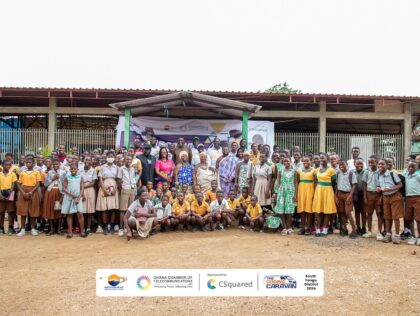At the 19th Ordinary Session of the African Telecommunications Union (ATU) Administrative Council held in Uganda, in April this year, with the special input of the Honorable Deputy Minister of Communications – Mr. Sowah Odotei, the theme for this year’s ATU Day on December 7th, is set to be; “Building ICT Innovation Capacity in Africa to boost Socio-Economic Development”.
Also, at a symposium held as part of activities to observe the 2018 World Telecommunication and Information Society Day by the Ministry of Communications (MoC), in collaboration with the National Communications Authority (NCA) in Accra at the NCA Tower on May 17th, the theme was “Artificial Intelligence for Social Good”.
Indeed, the keynote speaker at the event, Hon. George Nenyi Andah, Deputy Minister for Communications, who represented the Honourable Minister for Communications, Mrs. Ursula Owusu-Ekuful, said that in order to create a positive enabling environment for the use of Artificial Intelligence (AI) in Ghana, priority must be given to building solid ICT infrastructure so that AI can be developed and used seamlessly.
At the same event, which had many dignitaries in attendance including the Board Chairman of the NCA – Mr. Kwaku Sakyi-Addo, Mr. Joe Anokye, Director-General of the NCA in welcoming participants, said, as Ghana aspires to make the lives of her people better, AI comes in handy, adding that the Authority is leaving no stone unturned at ensuring that voice and data services are available.
At the 2018 Korea-Africa Economic Cooperation (KOAFEC) Conference, held in May this year, in Busan, South Korea, the theme was “Africa and 4th Industrial Revolution: Opportunities for Leapfrogging?”.
The keynote speaker at the event was Dr. Ngozi Okonjo-Iweala, famed Economist, the first female Minister of Finance as well as Foreign Affairs of Nigeria, former Managing Director of the World Bank (2007-2011) and Chair of the Board of the Global Alliance for Vaccines and Immunization (GAVI) and the African Risk Capacity (ARC).
She shared many insightful facts, 4 of which really stand out to me. That AI will lead to net job losses of about 5% globally. However, the countries which will avoid this squeeze are those who will lead in AI adoption and capacity building. Further, she said that Africa faces a two-pronged human capacity building problem – inadequate education of its citizenry and inadequate relevant education for the times.
So, it is heartwarming to see the introduction of Free SHS in Ghana. In fact, virtually all developed countries have this setup. Also, government’s refocus on technical education should be supported and accelerated. Finally, the Ministry of Education and Ghana Education Service need to work hard to ensure our curriculum is one which is in tune with modern times and development.
For, underpinning all these truths about the present and future being dominated by ICT from so many credible angles, is the capacity of the citizenry, especially the youth, to embrace the kind of education and training which will help Ghana leapfrog and master the 4th industrial revolution and bring about accelerated development.
And, underpinning ICT capacity is computer programming or coding. Therefore, the efforts of the government and non-governmental institutions like IIPGH to “catch our children young” in this area will go a long way towards the bright future we envision for our nation. Individual, parents, families and governments should all get aboard this express train.
Author: Prince Ofosu Sefah – (Deputy Director General – Operations, NCA and Board Member: Institute of ICT Professionals, Ghana)
For comments, contact author: psefah@yahoo.ca





